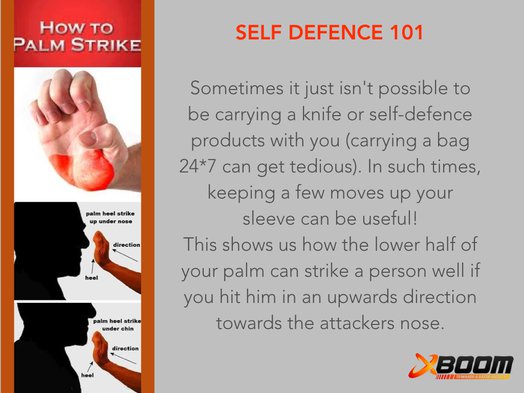
How to Palm strike and defend yourself
A strike using the palm. Whether the hand is open or the fingertips are folded against the bottom knuckles, palm strikes hit with the bottom part of the palm, where the hand meets the wrist. The hand is held perpendicular to the wrist to avoid hitting the softer inner wrist tissue against the target.
The palm strike is useful as it is thrown in a more relaxed manner than a clenched fist. This is because clenching the fist shortens the extensor muscles of the wrist, which counter the action of flexor muscles of the wrist used in punching. Many martial arts teachers keep the fist clench relaxed until impact to maximise the punch’s speed.
The palm can provide a devastating strike when properly executed. Palm strikes can knock out an opponent, seriously harm them, and protect your knuckles from unnecessary cuts and fractures. Palm strikes are a better way to attack the head when fighting barely knuckled than closed hand strikes are due to a significantly reduced chance of breaking one’s hand. In addition, the palm is a handy weapon for attacking hard areas on the body, such as the face and ribs.
Targets are numerous, and some examples include the nose, jaw, ears, back of the head, the groin, the kidneys, the temples and the abdominal cavity. Some combat sports, such as Pancreas, have forbidden strikes using the clenched fist but permitted strikes using the palm. When applied to the head, the palm strike is favoured over the punch by many for several good reasons that you might wish to consider.
Some products like the kitty knuckle, pepper spray would do a lot better and safer work and they are especially come in handy for women.




